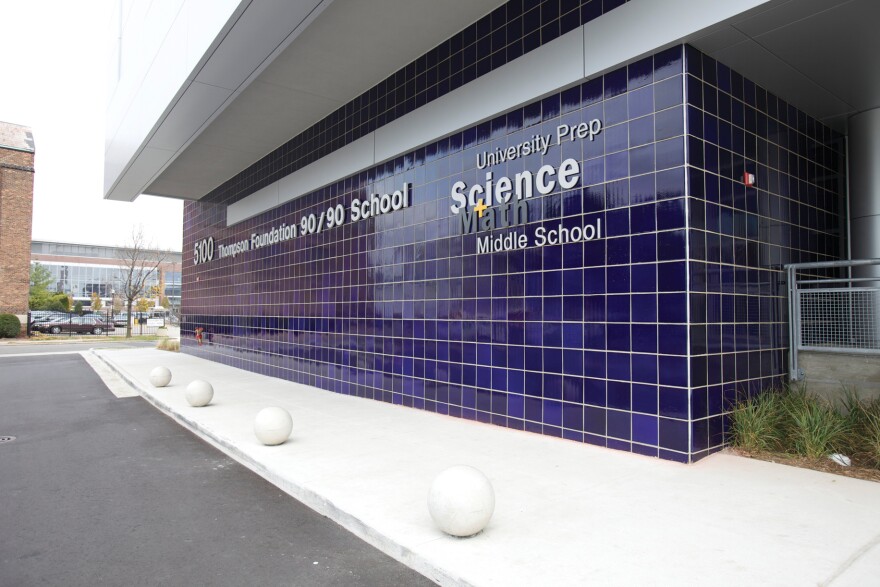If you think of the best of what the charter school movement was meant to accomplish – you might think of a school a lot like University Prep Science + Math Middle School in Detroit. It’s attached to the Michigan Science Center in Midtown.
Students fill the hallway, dressed in white shirts, and khaki pants. The boys wear ties.
Based on state testing, these are some of the top performing students in Detroit.
UPrep Science + Math CEO Margaret Trimer-Hartley is eager to brag.
"Not only do we do well on the data, we are the number one performing free-standing charter middle school in the state of Michigan," she says.
So you might think U Prep Science + Math has a waiting list every year, full of families who want to enroll their kids.
Trimer-Hartley says it’s the opposite.
"For the most part, we’ve adjusted our enrollment numbers, and we’ve adjusted them somewhat down over the past couple years." she says. "So we still do struggle to recruit.”
Over the past several years, Detroit has become one of the leading cities in the country for charter schools. Last year, 41 percent of all students in Detroit went to a charter school. That’s the second highest percentage of any city in the country.
In theory, these schools were going to compete for students based on the quality of education they provided.
But Margaret Trimer Hartley says the reality is a little different.
"There are all kinds of ways of luring kids and families to schools," she says. "Some of them are above board and some of them are not."
One of the gimmicks that’s growing in popularity in Detroit: free gift cards to families that enroll.
Trimer-Hartley says U Prep is not above using gimmicks like this. It’s just expected. But she believes other charter schools operators are out-spending her in marketing.
This is one of the weaknesses in Michigan’s wide-open policy on charter school.
"Choice can be a great lever for change and for providing more high quality options for kids, when the schools that are opening are of high caliber," says Amber Arellano is with the advocacy group Education Trust Midwest. "But when the legislature decided to lift the state cap on charter schools a couple years ago, they did not include any performance standards for who gets to expand here."
"In Michigan, we're an anomaly in the nation, with over 80 percent of our charter schools operated by for-profit companies,"
And in the absence of standards, Arrellano says the poor-performing charter school operators are actually expanding more quickly than the high performing ones. And since these schools still get their funding from the state, taxpayers have been subsidizing the growth of these substandard schools.
Not only that, but most of the charter school operators are taking home a profit in the deal.
"In Michigan, we’re an anomaly in the nation, with over 80 percent of our charter schools operated by for-profit companies," says Gary Miron, a charter school expert at Western Michigan University. According to his research, Michigan has the most for-profit charter schools of any state in the country – by a wide margin.
"And I kind of resent the fact that some people are still referring to these massive, national networks of charter schools as charter schools," Miron says. "Because they go against the original idea, which was going to be small, innovative, locally run schools. That’s not what we have today."
Miron has found that, on average, schools operated by for profit companies are less likely to meet the federal standard of "Adequate Yearly Progress." But, they tend to spend more money on marketing.
That’s made it difficult for smaller, locally run charter school to compete, even when they can show better results for students.





